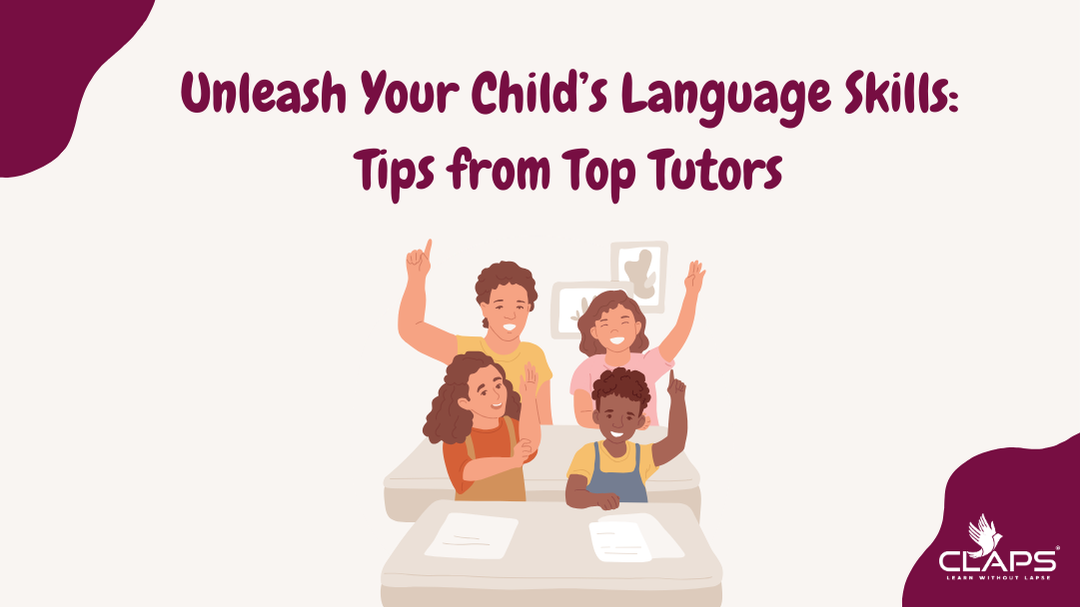Developing strong language skills is crucial for a child’s academic success and overall communication abilities. Here are some expert tips from top tutors to help you unleash your child’s language potential.
- Encourage Daily Reading
- Set a Routine: Establish a daily reading time to make reading a habit.
- Diverse Genres: Provide books from various genres to expose your child to different writing styles and vocabularies.
- Read Aloud: Spend time reading aloud together to improve pronunciation and comprehension.
- Expand Vocabulary Through Conversation
- Ask Open-Ended Questions: Encourage your child to think and respond in full sentences.
- Introduce New Words: Use new and interesting words in conversations and explain their meanings.
- Discuss Experiences: Talk about daily activities, experiences, and stories to enhance descriptive language skills.
- Utilize Educational Apps and Online Resources
- Duolingo: Offers fun, gamified language learning for various languages.
- Reading Eggs: Provides interactive reading lessons and activities for young learners.
- Khan Academy Kids: Features a wide range of language activities and educational videos.
- Practice Writing Regularly
- Daily Journaling: Encourage your child to keep a journal and write about their day.
- Creative Writing: Prompt your child to write stories, poems, or even plays.
- Letters and Emails: Have your child write letters or emails to family members and friends.
- Incorporate Language Learning into Daily Activities
- Label Objects: Label household items in both your native language and the target language to build vocabulary.
- Cooking Together: Follow recipes and read instructions aloud while cooking.
- Shopping Lists: Involve your child in writing and reading shopping lists.
- Engage in Storytelling
- Story Time: Share stories from books or make up your own stories together.
- Story Cubes: Use story cubes or picture cards to create spontaneous stories.
- Family Stories: Share family anecdotes and encourage your child to retell them.
- Encourage Learning a Second Language
- Bilingual Books: Use bilingual books to introduce a second language.
- Language Classes: Enroll your child in language classes or use language learning apps.
- Cultural Exposure: Expose your child to different cultures through music, films, and food to enhance their interest in the language.
- Provide Positive Reinforcement
- Praise Efforts: Acknowledge and praise your child’s efforts and improvements in language learning.
- Reward Achievements: Use a reward system to celebrate milestones and achievements.
- Constructive Feedback: Provide constructive feedback to help your child understand areas for improvement.
- Use Music and Rhymes
- Sing Songs: Sing songs together to improve pronunciation and rhythm.
- Nursery Rhymes: Use nursery rhymes to introduce new words and phrases.
- Language Learning Songs: Find songs specifically designed for language learning.
- Seek Professional Tutoring
- Customized Learning Plans: Tutors can create tailored learning plans that address your child’s specific needs and goals.
- Expert Guidance: Tutors offer expert insights and techniques to improve language skills.
- Regular Assessments: Tutors can regularly assess progress and adjust the learning plan as needed.
- Qualified Tutors: Our tutors are experts in language education and skilled in engaging young learners.
- Interactive Lessons: We use interactive and engaging methods to make language learning fun and effective.
- Personalized Approach: Our tutoring sessions are tailored to your child’s unique learning style and needs.
- Regular Progress Reports: We provide regular updates on your child’s progress and adjust the learning plan accordingly.



